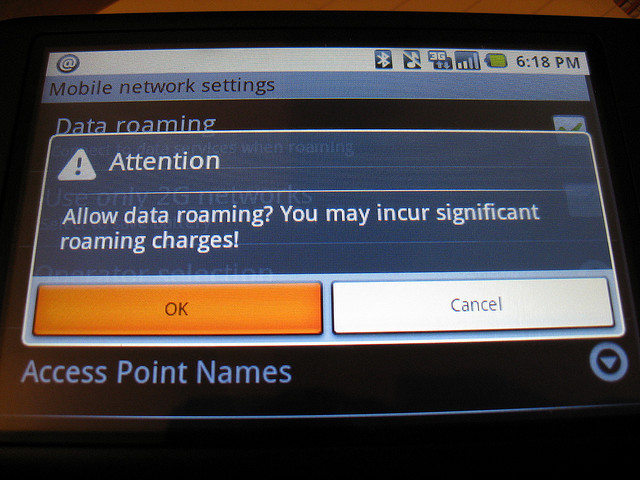Data roaming, the enemy of international travelers everywhere, is big business for carriers. And it’s only going to get bigger.
Roaming charges, which hit smartphone owners when they use data outside their service coverage areas, could earn operators $42 billion by 2018, according to a new report from Juniper Research.
The surge has two big causes, Juniper says. Not only will more customers take advantage of carriers’ faster LTE networks, but they’ll also be doing so at a lower cost as roaming packages and fees decline.
The price factor is huge here. For travelers who think ahead, AT&T charges $30 for a mere 120MB of roaming data, and Verizon offers 100MB for $25. Not exactly cheap.
Data roaming, however, is most dangerous when you don’t realize you’re doing it, which is why many travelers go as far as removing their phones’ SIM cards when they go abroad. If carriers ever hope to get to that $42 billion future, they’re going to have to give travelers good reason to change their habits.
One company that’s opting out of this lucrative future for roaming is T-Mobile, which killed its international roaming fees last October.
“People are scared to death to use your phone around the world. We’re taking a big stab and we’re going to make the world your home network,” T-Mobile CEO John Legere told CNET at the time.
Data roaming, however was never much a big business for T-Mobile in the first place, having accounted for just 2.4 percent of the company’s revenue in the quarter before T-Mobile introduced its new plans.


